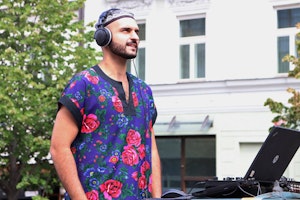Failing Another Generation: A Photo Essay
-
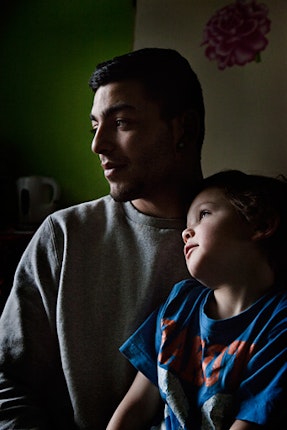
Julius Mika at home with his son Julek. Julius was one of the original applicants in the D.H. case. As a child, he attended standard school until a bout with pneumonia forced him to miss several weeks of classes. When he recovered, instead of getting support from teachers to catch up, he was moved into a practical school. “I wouldn’t wish the experience on my worst enemy. The system left me without an education and without even a trade. If I could choose, I would strive to be something more. I would be a lawyer. I would practice law to stop what is happening to Roma children.” © Stephanie Sinclair/VII for the Open Society Foundations -
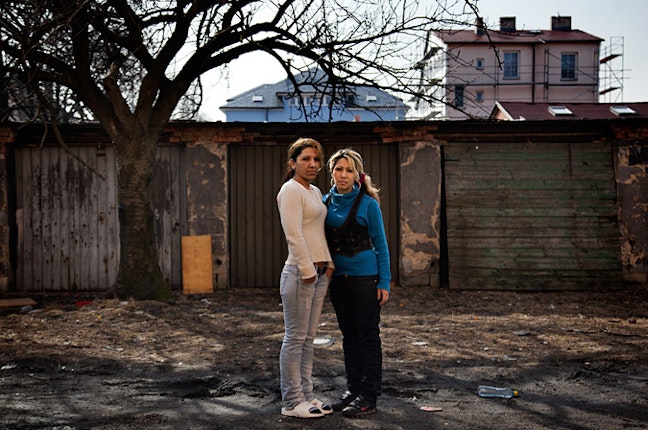
Alena Lesková with her daughter Denisa Holubová outside their home in Ostrava, Czech Republic. Denisa was the lead applicant in the case before the European Court of Human Rights. Her initials—D.H.—became synonymous with the case. Alena has three younger children still in the Czech school system and she says nothing has changed. “They call it a standard school now, but it’s really still a practical school. This has to change, so that Roma children can become something. So that they have a chance to change their lives.” © Stephanie Sinclair/VII for the Open Society Foundations -
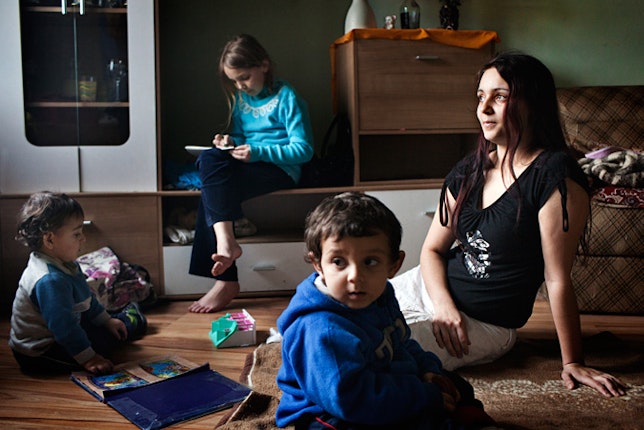
Veronika Šindelářová at home with her sons Fabiàn and Rinaldo and her half-sister Vanesa. Veronika attended standard school until the third grade, when, as the only Roma child in the class, she was bullied by her teacher. To protect her, her mother agreed to move her to a practical school. After graduating, instead of becoming a nurse, Veronika went to a vocational school to learn to bake sweets. “I don’t want what happened to me to happen to my children. I want them to have more than I had. To have dreams. And I want them to be able to fulfill their dreams.” © Stephanie Sinclair/VII for the Open Society Foundations -
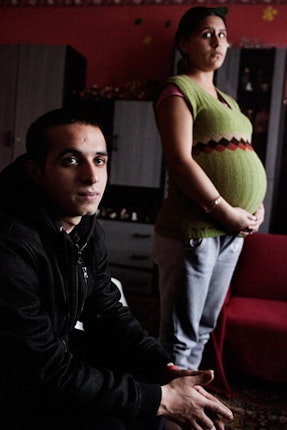
Peter Danko and his girlfriend Milada Horvathová. Like the other applicants in the case, Peter was already out of school by the time the European Court ruled in his favor. After finishing practical school, he went on to become an apprentice to work in construction. “My dream is to work. And I want us to have a home of our own. My girlfriend and I have been together for four years. We will be having a baby girl. Her name will be Katrina. I would like my daughter to go to university.” © Stephanie Sinclair/VII for the Open Society Foundations -
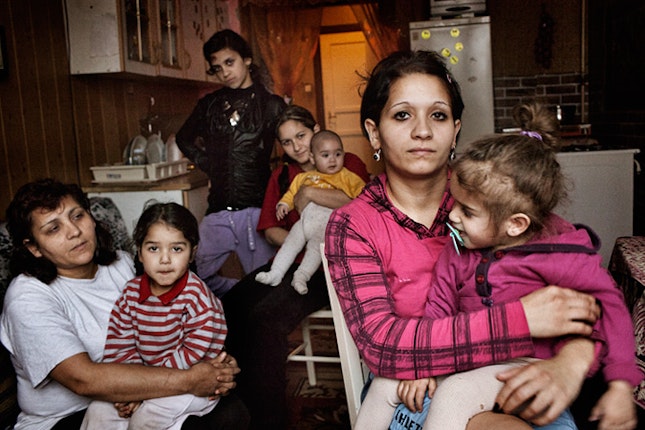
Margita Danková (left) with children and grandchildren—from left to right, Adrian, Sára; Nina, holding Santyjago; and Lucie, holding Kristinka. Margita Danková, Peter Danko’s mother, has watched seven children go through the practical school system after being diagnosed with mental disabilities in assessments arranged by their school. “I got involved in the case because I wanted my children to continue their studies. When the psychologists checked to see if my children were actually mentally disabled, they discovered they were not.” © Stephanie Sinclair/VII for the Open Society Foundations -
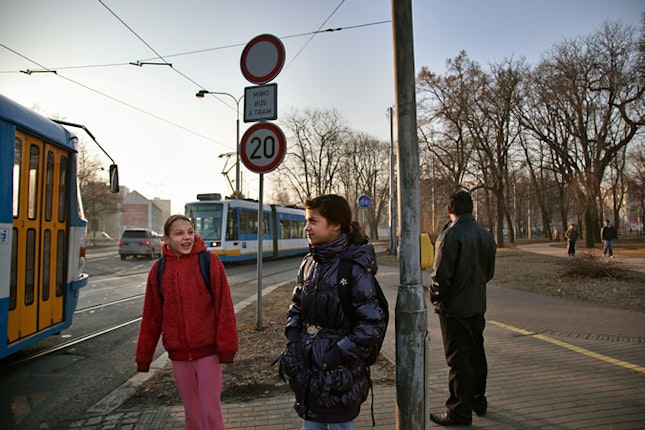
Sára Danková (center) on her way to school. Since the judgment, some practical schools are starting to steer children back into mainstream education—but with no support and often in hostile circumstances or ghettoized schools. Recently, the school principal called Margita Danková about her daughter, Sára. “He said, ‘I have beautiful news—your daughter can go to a standard school. You can choose where you want her to go.’ But I was angry with him and said, ‘Why would you wait until she is 12 years old to make this decision? Why didn’t you say something sooner?’” © Stephanie Sinclair/VII for the Open Society Foundations -
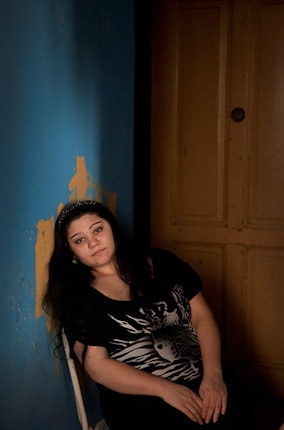
Helena Kočková inside the home she shares with her family. Helena was 10 years old when she joined the D.H. case. She attended practical school until she graduated at 15. “If they’d given me a chance, I would have gone to beauty school. I wanted to be a manicurist. But I was not prepared in my early education.” © Stephanie Sinclair/VII for the Open Society Foundations -
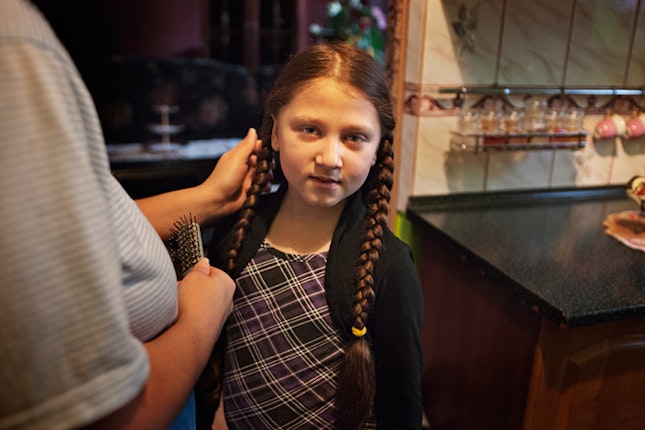
Bára Kočková prepares for school. Bára attends the same school her aunt Helena Kočková did. Bára enjoys school and says she wants to become a teacher. But her father, Roman Kočko, worries about her prospects. He says the school—which is no longer considered a practical school—has changed in name only. “The only way Bára will be able to be a teacher is for her to go to university and I’m afraid there is no chance for that. She’s being prepared to be a server or some other low level job.” © Stephanie Sinclair/VII for the Open Society Foundations -
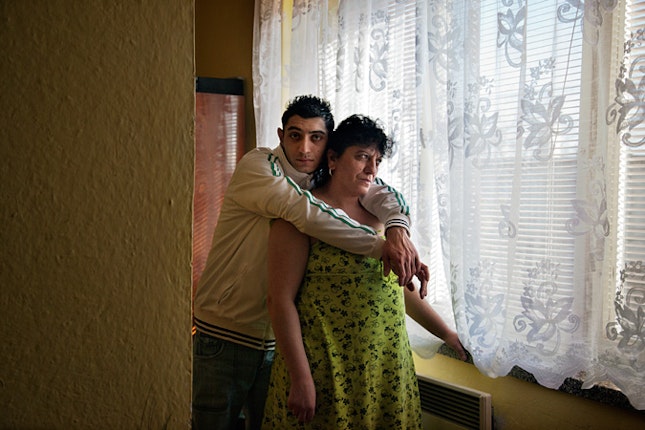
Dušan Bandy and his mother Helena Bandyová. Helena Bandyová’s two daughters, both of whom were sent to practical schools, were applicants in the D.H. case. After seeing their experience, Helena fought to keep her son out of the practical school system. Dušan Bandy graduated from a standard school that was committed to inclusive education. “Having a better education has been very helpful. They treat me better in the employment office. The first question they ask you is, ‘Did you go to a practical school or standard school?’ Education helps with everything in life.” © Stephanie Sinclair/VII for the Open Society Foundations -
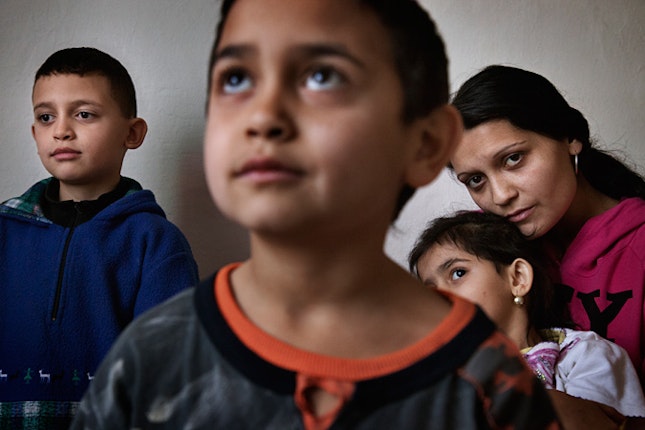
Dominik Žiga (center) with his mother Yveta Gáborová, older brother Nikolas, and younger sister Jessica. Yveta Gáborová is a cousin of Dušan Bandy. Her son, Dominik, attended a standard school near the family’s home. Then, in January 2012, the school administrators told Yveta that Dominik needed to be transferred to a practical school. “He started at the standard school but he always returns home with bruises. The kids stab him with their pencils and pens. I take him back to the school, angry at all the bruises and the teachers say, ‘I didn’t see anything.’ The teacher said to me, ‘We aren’t used to having Roma children here.’” © Stephanie Sinclair/VII for the Open Society Foundations -
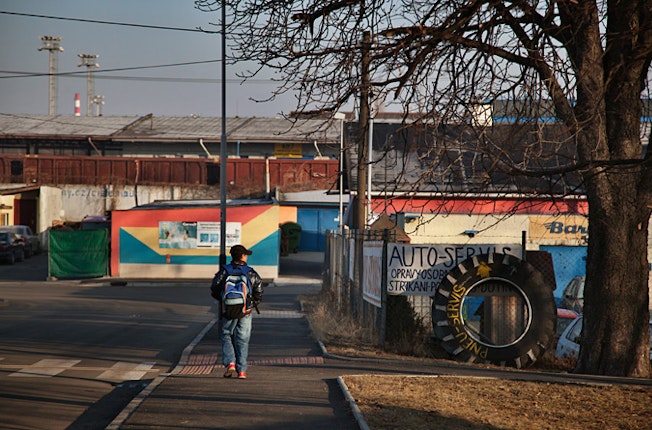
A child walks to school in Ostrava, Czech Republic. The test now for the Czech Republic is whether it will finally do what the D.H. decision of the European Court requires: end segregation and discrimination, and ensure that all Czech children enjoy equal opportunity in an inclusive educational environment. The test for the international community is whether it chooses to help to make these changes possible—or stands by watching as nothing is done. More Roma children’s lives are ruined with every year that passes. © Stephanie Sinclair/VII for the Open Society Foundations
The 300,000 Roma in the Czech Republic face widespread and persistent discrimination—starting at school.
Roma children are funneled into so-called “practical schools”—dead-end institutions where they are taught a limited, low-level curriculum. Five years ago, the European Court of Human Rights demanded that the Czech government stop this segregation, after 18 children won a legal challenge to the system in a law suit known as D.H. and Others v. Czech Republic.
Yet, five years after the judgment, too many Roma children are still caught up in a sub-standard and discriminatory education system, with no chance to grasp the many opportunities that most other children take for granted.
The Open Society Justice Initiative commissioned photojournalist Stephanie Sinclair to document the stories of the original D.H.applicants—many of whom now have children of their own.


